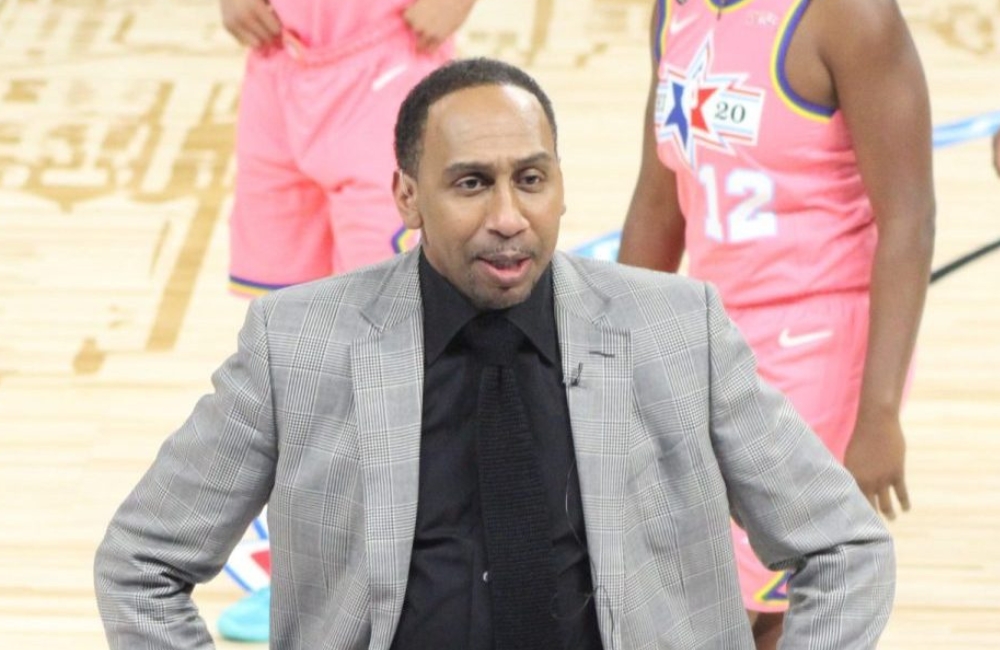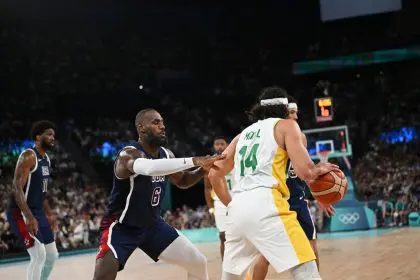In the world of sports, the decisions made by athletes regarding their careers can have lasting impacts, not only on their own futures but also on the next generation. Recently, renowned sports commentator Stephen A. Smith shared his thoughts on how LeBron James should have approached his son Bronny James’ career differently, drawing a comparison to Carmelo Anthony and his son Kiyan Anthony.
The comparison: Bronny James vs. Kiyan Anthony
Stephen A. Smith believes that LeBron could have benefited from a more measured approach similar to Carmelo’s. While Bronny James has made headlines for his decision to transition directly from high school to the NBA, Kiyan Anthony is set to attend Syracuse University, following in his father’s collegiate footsteps. This decision not only reflects a different path but also highlights the potential benefits of taking time to develop skills at the collegiate level.
Why college matters
Attending college can provide young athletes with invaluable experience, exposure and education. For Kiyan, going to Syracuse means he will have the opportunity to learn from seasoned coaches, compete at a high level and grow both as a player and a person. This experience can help him refine his skills and prepare for the rigors of professional basketball.
In contrast, Bronny’s leap to the NBA comes with its own set of challenges. The pressure of living up to his father’s legacy while also carving out his own identity can be daunting. Stephen A. Smith’s perspective suggests that a more gradual transition could have been beneficial for Bronny, allowing him to develop his game in a less pressurized environment.
LeBron’s influence and expectations
As one of the greatest basketball players of all time, LeBron James carries immense expectations, not just for himself but also for his children. The spotlight on Bronny is intense, and the comparisons to his father are inevitable. This can create a unique set of challenges for young athletes, who may feel they need to meet or exceed the accomplishments of their parents.
LeBron’s decision to support Bronny’s immediate entry into the NBA reflects his belief in his son’s talent and readiness. However, it also raises questions about whether this was the best choice for Bronny’s long-term development. Smith’s commentary encourages a discussion about the pressures faced by young athletes and the importance of making informed decisions about their careers.
What can we learn?
Smith’s insights into the contrasting paths of Bronny and Kiyan serve as a reminder of the complexities involved in nurturing young talent. Here are a few key takeaways:
Development takes time: Rushing into professional sports can hinder long-term growth. A collegiate experience can provide essential skills and maturity.
Individual paths: Each athlete’s journey is unique. What works for one may not work for another, and it’s crucial to consider personal strengths and weaknesses.
Support systems matter: Having a strong support system, including family and mentors, can help guide young athletes through their decisions.
As the conversation around Bronny James and Kiyan Anthony continues, Smith’s perspective adds a valuable layer to the discussion about youth sports and career development. Whether young athletes choose to follow in their parents’ footsteps or carve their own paths, the decisions they make today will shape their futures. The debate on the best approach to nurturing talent in sports is ongoing, and it is essential to consider all angles to support the next generation of athletes.














